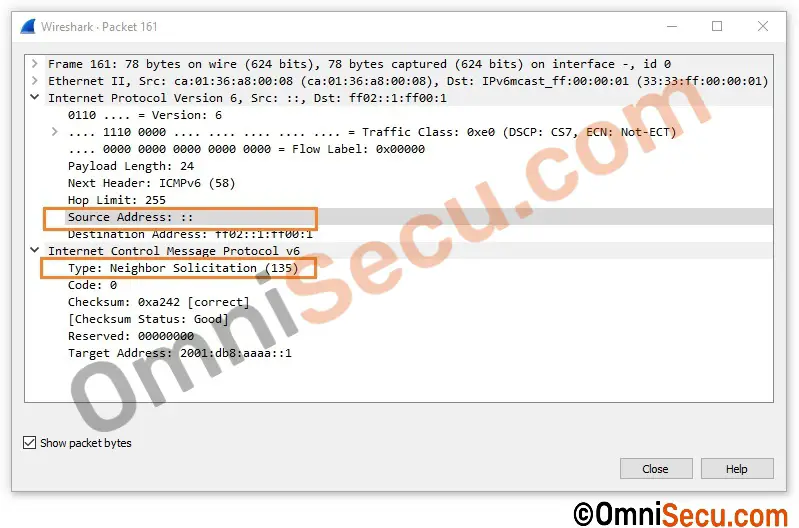Types of IPv6 Addresses, Global Unicast, Link-local, Multicast, Anycast, Loopback addresses
IPv6 has several types of addresses, some of which are explained below.
As discussed in a previous IPv6 lesson, there are three types of communications in IPv6. Three types of communications in IPv6 are Unicast, Multicast and Anycast.
• Global Unicast IPv6 addresses: Global Unicast IPv6 addresses are used to identify a single interface. Global Unicast IPv6 addresses are internet routable IPv6 addresses, similar to public IPv4 addresses in IPv4.
• Link-local IPv6 addresses: Link-local IPv6 addresses allow communications between devices on a single local link, within an organization. Link-local IPv6 addresses can be auto-generated. Link-Local IPv6 addresses are not globally routable. Normal Link Local IPv6 address prefix is fe80::/10.
• IPv6 multicast addresses: A multicast address identifies zero or more interfaces on the same or different hosts. A multicast transmission sends packets to all interfaces that are part of a multicast group. The group is represented by the IPv6 destination address of the packet. IPv6 multicast addresses start with FF. Following are the important IPv6 multicast addresses.
ff02::1 - All nodes on the local network segment. This IPv6 multicast address is used for IPv6 local broadcast.
ff02::2 - All routers on the local network segment
• Anycast IPv6 addresses: An anycast address identifies multiple interfaces. An anycast transmission sends packets to only one of the interfaces associated with the address, not to all of the interfaces. This interface is typically the closest interface, as determined by the routing protocol.
• IPv6 loopback address: Used by a node to send an IPv6 packet to itself. An IPv6 loopback address functions the same as an IPv4 loopback address. The IPv6 loopback address is 0000:0000:0000:0000:0000:0000:0000:0001/128, which can be also represented as ::1.
• IPv6 unspecified address: IPv6 unspecified address is 0000:0000:0000:0000:0000:0000:0000:0000, which can be shortened to :: (two colons). IPv6 unspecified address is used to communicate when an interface is not assigned with an IPv6 address. IPv6 unspecified address is similar to IPv4 unspecified address, 0.0.0.0 in its functionality.
Please refer below image, where IPv6 unspecified address is used as the source IPv6 address.

Written by Jajish Thomas.
Last updated on 14th May, 2024.